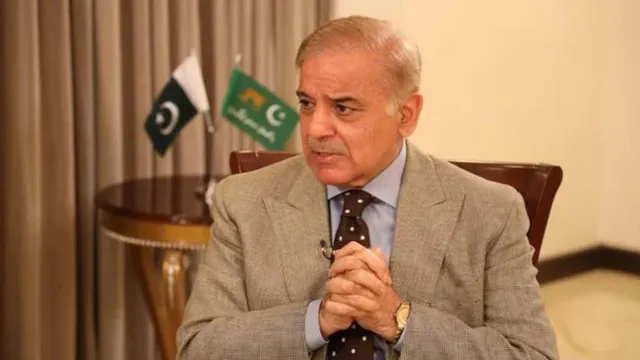- By Ajeet Kumar
- Thu, 21 Aug 2025 12:42 PM (IST)
- Source:JND
IMF's latest direction to Pak: In a major blow to Pakistan, the International Monetary Fund (IMF) has called on Pakistan to bring greater transparency and discipline to its public spending. It asked the Pakistani government to route parliamentarians' development schemes through formal approval mechanisms and limit mid-year budget changes without parliamentary oversight, The Express Tribune reported.
Citing the IMF's latest Governance and Corruption Diagnostic Assessment report, the Pakistani media reported that the global financial institution emphasised that integrating lawmakers' community-level development schemes into the formal Public Sector Development Programme (PSDP) would enhance efficiency, affordability, and accountability. The report is expected to be officially released by the government later this month.
Currently, such projects are approved by a Steering Committee on SDGs Achievement Programme, chaired by Pakistani Deputy Prime Minister Ishaq Dar, without undergoing the rigorous checks required for regular development projects.
Last year, the government allocated PKR 61 billion to these schemes, with PKR 70 billion earmarked for the current fiscal year.
IMF highlights how Pakistan failed to address local needs
The IMF noted that while many of these small-scale welfare projects address local needs, they often fall under the responsibility of local governments, not the federal level. The institute has recommended prioritising high-impact and high-priority projects in the PSDP and capping new project allocations to avoid overextension of limited development resources.
ALSO READ: Pakistan Foreign Minister Reveals Data On Countrymen Jailed Across Countries For Murder, Rape, Others Charges | Details
The report also pointed to the need for more timely and transparent budgeting processes. It urged the Pakistani Ministry of Finance to publish the Budget Strategy Paper at least six months before the annual budget presentation, contrary to the current practice of delayed or non-publication. Additionally, it called for enhanced parliamentary involvement in pre-budget discussions.
The IMF reiterated its longstanding advice to limit supplementary grants and avoid adjusting the budget mid-year without parliamentary approval. While acknowledging the need for emergency allocations, such as those for natural disasters, it recommended creating a dedicated contingency pool to handle unforeseen expenses.
ALSO READ: Asim Munir's '$2 Billion-A-Year Dream' After Pakistan's US Oil Deal: 'Debt Will Be...'
In recent weeks, the government has already issued supplementary grants, including PKR 250 million for the Strategic Policy Planning Cell under the National Security Division and PKR 3.5 billion for QR-code-based payment subsidies, which ideally should have been included in the original budget.
Pakistan's preferential treatment scheme
To further improve transparency in public procurement, the IMF has proposed amending the Public Procurement Regulatory Authority (PPRA) law to eliminate preferential treatment for state-owned enterprises and charitable organisations, ensuring a more level playing field in government contracts.
The IMF's recommendations aim to support Pakistan in strengthening fiscal governance, prioritising effective public spending, and reinforcing institutional accountability. While progress has been made in certain areas, the organisation stresses that further reforms are essential for long-term fiscal sustainability and economic resilience.
(With inputs from agency)

